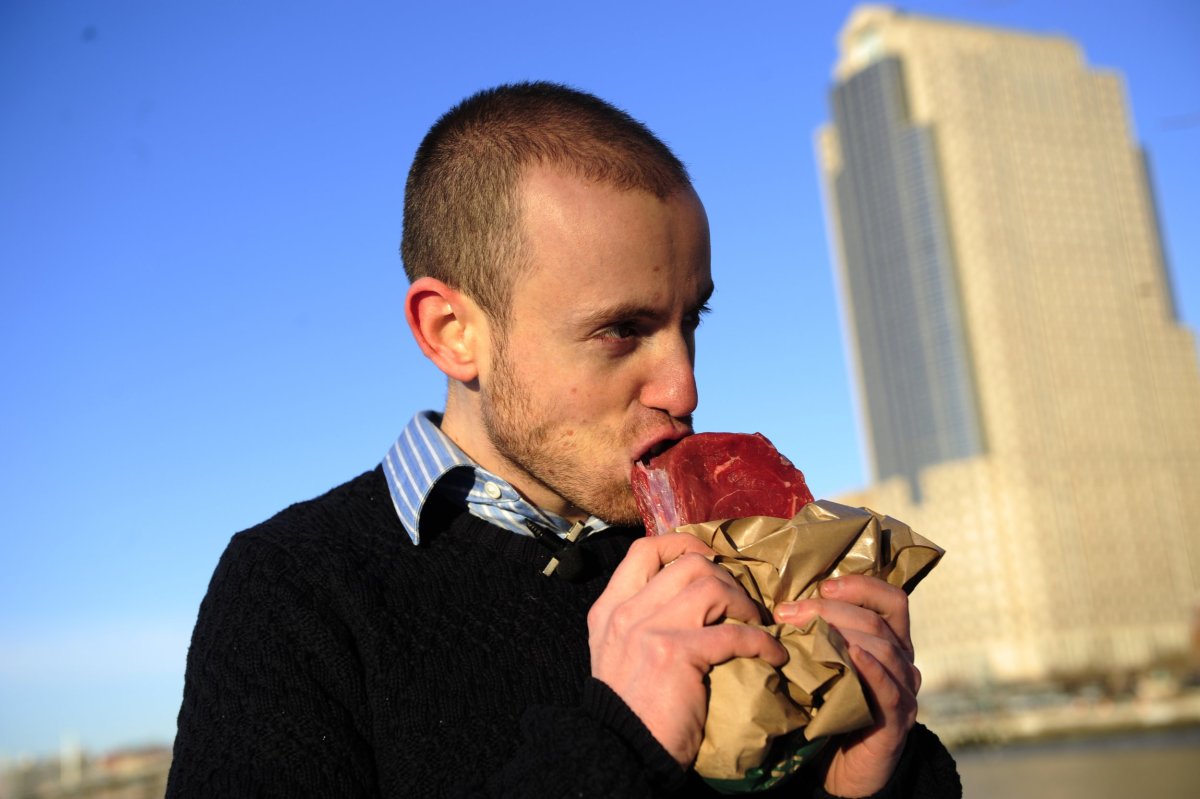A new "pegan" diet aims to combine elements of paleo and vegan cuisine choices in order to break up the near "religious fervor" dividing the dietary camps.
Family physician Dr. Mark Hyman of Cleveland Clinic's Center for Functional Medicine told Megyn Kelly on the Today show on Monday how confusing studies and ever-changing dietary patterns can be deciphered. Hyman said he recommended a "paleo-vegan" or "pegan" diet to most of his patients, although he noted that every diet should be specifically tailored to a person's health and preferences. Perhaps the most consolidated factor is to eat mostly plants, with fruits and vegetables making up 75 percent of your diet and your plate for each meal.

Hyman said he laments the never ending slew of "nutrition wars" and "diet wars," but that his pegan diet focuses on several healthy elements contained in both choices. Hyman agreed with Kelly's assessment that a paleo diet is "eating like a caveman," that is heavy on meats and other protein, while vegans shun meat altogether but love grains and beans. Pegans should seek out as many deep-colored fruits and vegetables as possible, with a particular concentration in organic and fresh local foods. Broccoli, kale and peppers were specifically recommended. "Franken chemicals" such as additives, dyes and MSG should be avoided, as should any GMO foods that have been exposed to antibiotics, hormones or pesticides.
Pegans embrace a high amount of quality fats such as Omega 3 fats and those found in nuts, olive oil and avocados.
"Most of the 'evidence' that fat in general and saturated fat, in particular, is bad for us is being rigorously challenged by better and more specific research," Hyman wrote on his blog. But prominent dietary authors, Dr. Caldwall Esselstyn and Dr. Dean Ornish, advised a minimum amount of fat diets for people at risk of heart disease. Foods that are high in sugar, flour and refined carbohydrates should be avoided as a whole. "Think of sugar as an occasional treat in all its various forms," wrote Hyman.
Both diets reject dairy foods, with Hyman agreeing this is "for good reason" given that risks for obesity, diabetes, heart disease and cancer can increase with a diet that's heavy in dairy foods.
But the pegan diet also weighs in on some of the thorniest disagreements between vegan and paleo followers: Grains, beans and meat.
Paleo diets are strictly against breads, pastas, rice and beans, with a massive study of almost 30,000 patients published by the Journal of the American Medical Association tying gluten to inflammation and digestive disorders. Small portions of low glycemic grains such as black rice and quinoa were recommended as well as any bean-free products. While Hyman said "moderate amounts" of bean foods are perfect sources of fiber, digestive issues and spikes in blood sugar can be problematic over time.
In the widest divide between paleo and vegan diets is the topic of meat. The carnivorous controversy can be broken up between feed beef, which raises cholesterol and increases inflammation, compared to grass fed beef that contains omega 3 fats and vitamins A and D. Overall, Hyman wrote that "all meat is not created equally," with increased risks of heart attacks and death rates tied to meat not telling the full story.
"The evidence in my mind is trending toward meat not being linked to death or heart attacks, [often] they were higher sugar consumers, they were more sedentary and they were more likely to smoke and drink," wrote Hyman. "Eating sustainably raised, clean meat, poultry and lamb and other esoteric meats such as ostrich, bison or venison as part a healthy diet is not likely harmful and is very helpful in reducing triglycerides, raising HDL (or good cholesterol), lowering blood sugar, reducing belly fat, reducing appetite, raising testosterone and increasing muscle mass."
Uncommon Knowledge
Newsweek is committed to challenging conventional wisdom and finding connections in the search for common ground.
Newsweek is committed to challenging conventional wisdom and finding connections in the search for common ground.
About the writer
Benjamin Fearnow is a reporter based out of Newsweek's New York City offices. He was previously at CBS and Mediaite ... Read more
To read how Newsweek uses AI as a newsroom tool, Click here.








